Savings | Term 2 Chapter 2 | 4th English - What do humans save? (Poem): Questions with Answers | 4th English : Term 2 Unit 2 : Savings
Chapter: 4th English : Term 2 Unit 2 : Savings
What do humans save? (Poem): Questions with Answers
A. Match with their storing places.
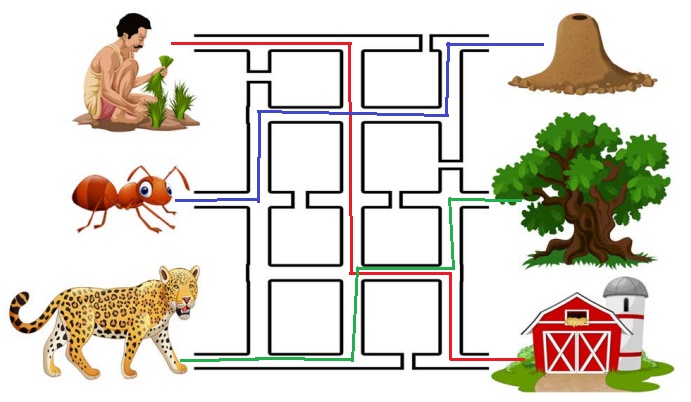
B. Fill in the blanks with rhyming words
1. anthill - chill.
2. tunnels - channels.
3. larder – starter.
4. tree - free.
C. Answer the following questions.
1. Where do ants pile their food?
Ants
pile their food in anthills.
2. Where do the crocodiles save?
Crocodiles
save food in their pantries.
3. What do you save? Why it is needed?
I save natural resources. It is needed for the use
future generations.
LET US KNOW
Past tense
Simple past tense is used to describe an action that has happened. You already know the verb forms they are:

The past form is used in simple past tense.
Come let us use it.

I boiled the water.
We boiled
the water.
She boiled
the water.
You boiled
the water.
It (stove) boiled
the water.
He boiled
the water.
They boiled
the water.
We saw simple
past tense for action verb. Now let us see the simple past tense for “be” form
verbs (state of being)
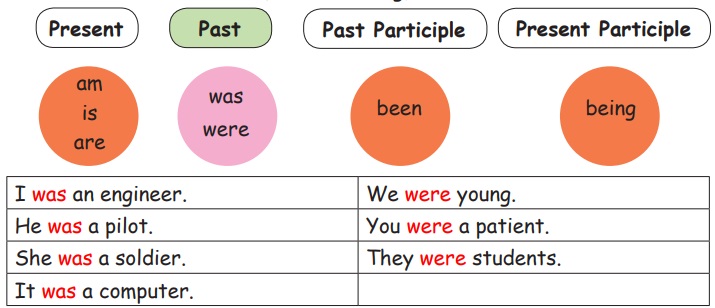
I was an
engineer.
He was a pilot.
She was a soldier.
It was a computer.
We were young.
You were a patient.
They were students.
We use the past tense to talk about.
An action that has happened.
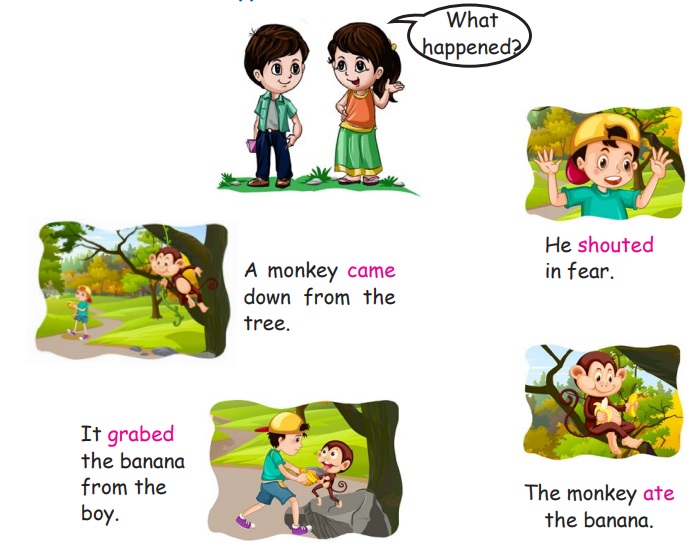
What happened?
A monkey came down from the tree.
He shouted in fear.
It grabed the
banana from the boy.
The monkey ate the banana.
Write was or were to
complete the sentence.
I was
the leader of my class.
Kavi was kind to me.
We were
in New York , last week.
The bus was
brand new.
You were
a baby.
They were
friends.
Ragu was
my junior in school.
Write the past form of the verbs.
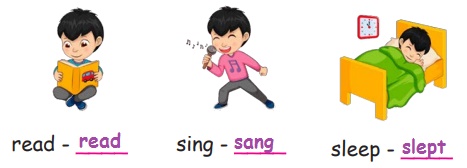
read - read sing - sang
sleep - slept
Complete the sentence with the simple past form of
the given verbs.
1. It snowed (snow)
last winter.
2. The rain continued (continue) all day.
3. I lost
(lose) my balance.
4. We stood
(stand) for hours.
5. Tom came
(come) home from school.
Future tense
Simple future
tense refers to an action or event that has not yet happened.

The present form
is used in simple future tense with the auxillaries
shall or will.
Come let us use it.

In the above
example, you can see the verb is in the present form.
The word shall
and will are used for I and we.
Will is used for
you, they, he, she, it.
We use the simple future tense for actions that yet
to happen.
The bus will reach Arcot by the evening.
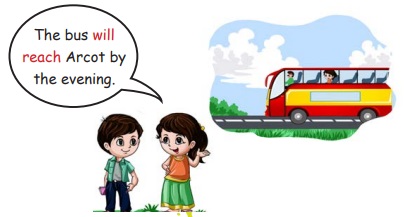
Circle/underline the sentences that is in simple
future tense.
1. They washed
the van.
2. Kamal will meet
you at the shop.
3. My dad helps
me read.
4. It will rain
tomorrow.
5. He ate many
mangoes.
Fill in the blanks with simple future tense of the
verb.
1. Sakthi will earn
(earn) a lot of money.
2. You will travel (travel) around the world.
3. Everybody will adore (adore)
you.
4. Many people will serve (serve) you.
5. They will
anticipate (anticipate) your
wishes.
LET US LISTEN
Listen to the advertisement and answer the
questions given.
1. How many
accounts can a parent open at most?
a. 3
b. 2
c. 3
Answer:
2. When does the
deposit mature?
a. Both
b. 21 years
c. 14 years
Answer:
3. The minimum
deposit for an account is ______.
a. 1000
b. 2000
c. 500
Answer:
4. Income tax
exemption given under the section ____.
a. 80C
b. 18C
c. 16A
Answer:
5. The name of
the savings scheme is _________.
a. Public Provident Fund
b. Selvamagal
c. Postal Life Insurance
Answer:
Note to the teacher: Scan
the QR code to listen to the audio. Let the children listen to the audio and
answer the questions.
LET US SPEAK
Learn how they speak in the bank and practise as if
you were in that situation.
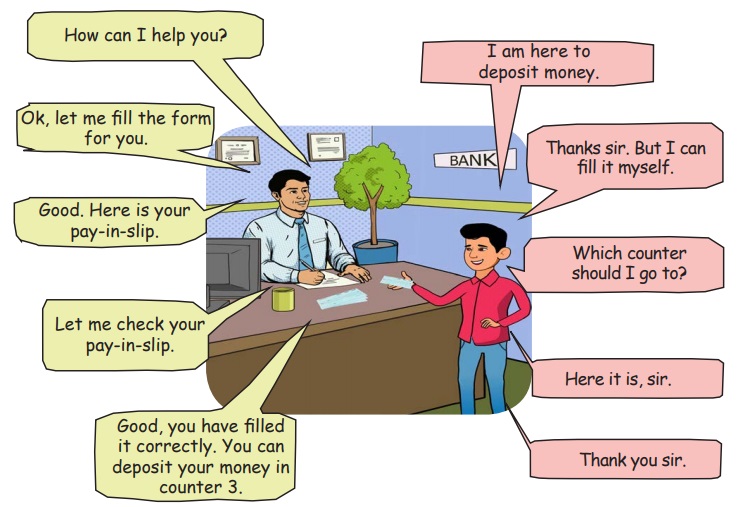
How can I help you?
I am here to deposit money.
Ok, let me fill the form for you.
Thanks sir. But I can fill it myself.
Good. Here is your pay-in-slip.
Which counter should I go to?
Let me check your pay-in-slip.
Here it is, sir.
Good, you have filled it
correctly. You can deposit your money in counter 3.
Thank you sir.
Structures that are useful for this situation.
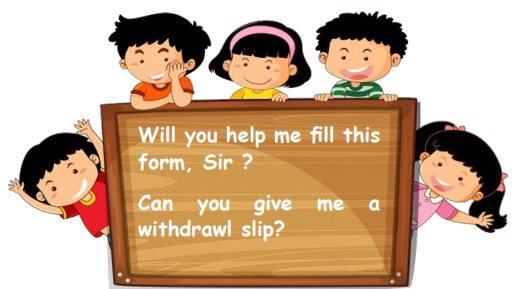
Will you help me
fill this form, Sir ?
Can you give me a
withdrawl slip?
Note to the teacher: Make the children
practise these phrases and give them more scenarios to practise.
Related Topics